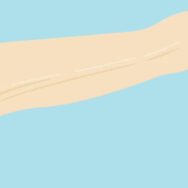Cancer Related fatigue (CRF) is one of the most common side effects of cancer and its treatment with an estimated 25% – 99% of cancer patients, at some point experiencing fatigue. CRF may come on suddenly and is not relayed to activity or exertion, nor is it relieved by rest. CRF may also continue for months after the treatment for cancer has ceased. Feelings of fatigue can have a negative impact on your quality of life.
What is fatigue?
It is a feeling of emotional and physical tiredness associated with low levels of energy that does not improve with rest. CRF can interfere with your level of functioning making simple tasks such as doing the washing and going outside difficult to perform. Symptoms may include:
- having little or no energy
- muscle aches and pains
- weakness or slowness
- trouble thinking clearly or concentrating
- not being able to do daily tasks
What is the cause of CRF?
The exact reason for cancer fatigue is unknown. CRF may be related to both the disease process and treatments, including surgery, chemotherapy, and radiation therapy, as well as other factors such as:
- the cancer itself and cancer treatments
- medicine, such as pain relief
- side effects of treatment, like low red blood cells (anaemia) or pain
- changes to what you eat
- stress and mood changes, including depression
- sleeping difficulties
- a lack of physical activity
- other health problems, such as infection.
Management of CRF:
Firstly, discuss CRF with your GP or health professional to establish what may be contributing to your fatigue.
Here are a few more tips:
- Try and plan out your day and learn to pace yourself. Such as not doing all the washing or gardening on one day, plus looking after the grandkids, plus trying to fit in a walk.
- Plan your activities for when you have the most energy.
- Don’t be afraid to have a rest in the middle of the day.
- Eat well and drink plenty of water.
- Try meditation or tai chi to slow the body and mind
- Deep abdominal breathing can help calm your nervous system and calm the body
- Sleep: try and develop a good sleep routine
- Finally: exercise!! It may sound contradictory, however, exercise has been shown to reduce CRF!!
Exercise should be a part of the treatment and management plan that can help lessen the effect of fatigue along with correct diet, sleep and medication. Multi modal exercise has been shown to be effective in reducing fatigue this includes Aerobic exercise (walking, cycling, swimming), Resistance exercises (weights, strength training), and other methods (relaxation techniques, yoga, meditation, tai chi).
Some of the ways exercise can help is through:
- Anti-inflammatory affect: The cancer itself, cancer treatments, psychological and behavioural factors have all been shown to increase inflammation, which is believed to be a cause of CRF. Exercise has an anti-inflammatory effect on the body
- Decreased cortisol: the stress hormone
- Improves muscle mass and strength
- Improves lung capacity
- Improves heart strength and capacity
- Improves flexibilty
It is important that you avoid total rest no matter how tired you may be as this will only worsen your fatigue. Begin exercising slowly at a level you are comfortable with to avoid over working and stressing your body more than it can handle.
If you are having trouble with managing your fatigue levels or don’t know how to begin exercising, contact us at Restore Physiotherapy and book an appointment to get exercising. After a thorough assessment with our exercise physiologist, you will be prescribed a program that is suitable for your exercise level, taking into account your age and any other issues you may have that may have prevented you from exercising in the past. There is always something you can do and we will find the exact program for you to manage.
Remember, something is better than nothing. It doesn’t matter how small, just try and keep moving!!
Take a look at this video on ABC Catalyst for further information around cancer and exercise.
https://www.abc.net.au/catalyst/exercise-and-cancer/11016526



No Comments